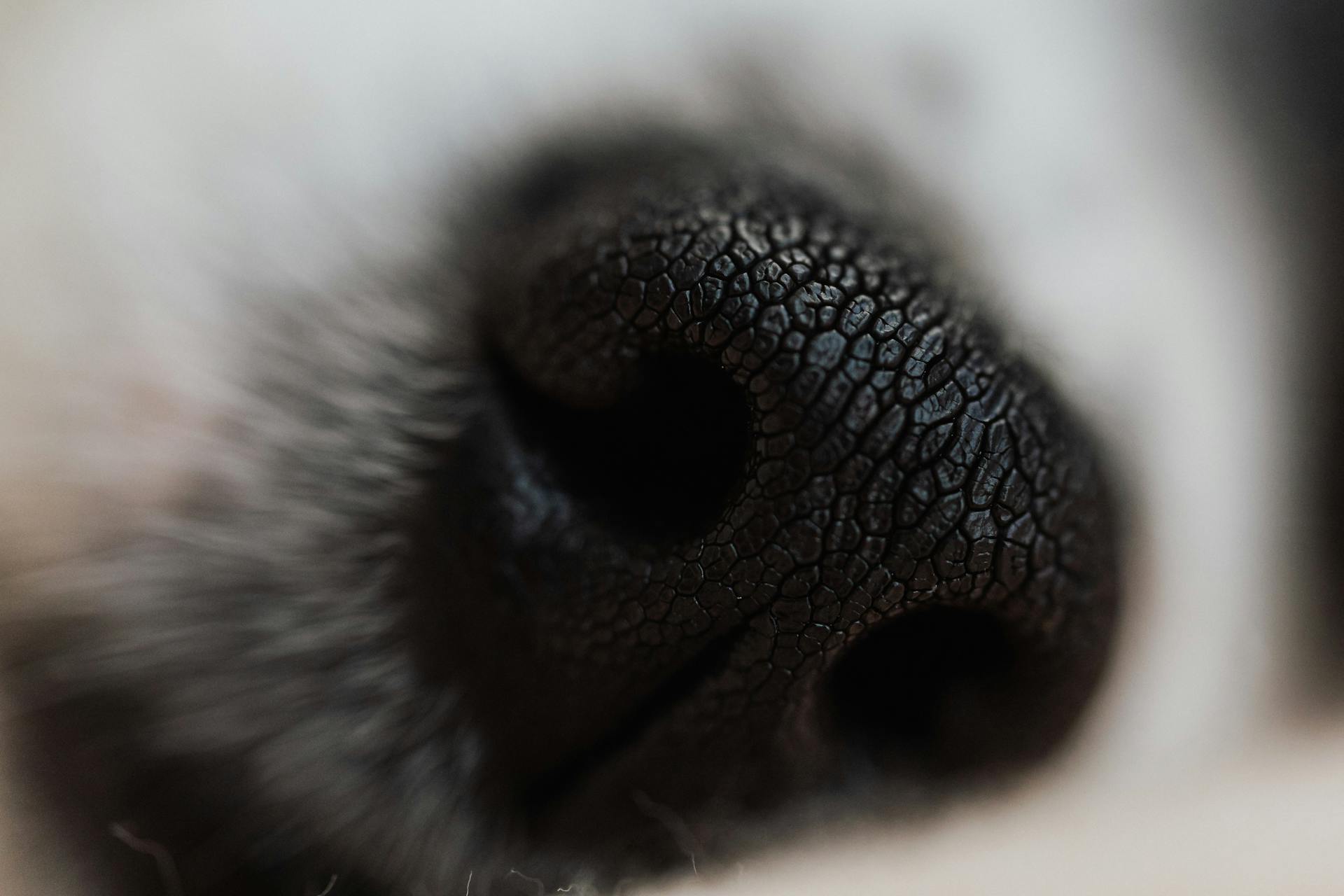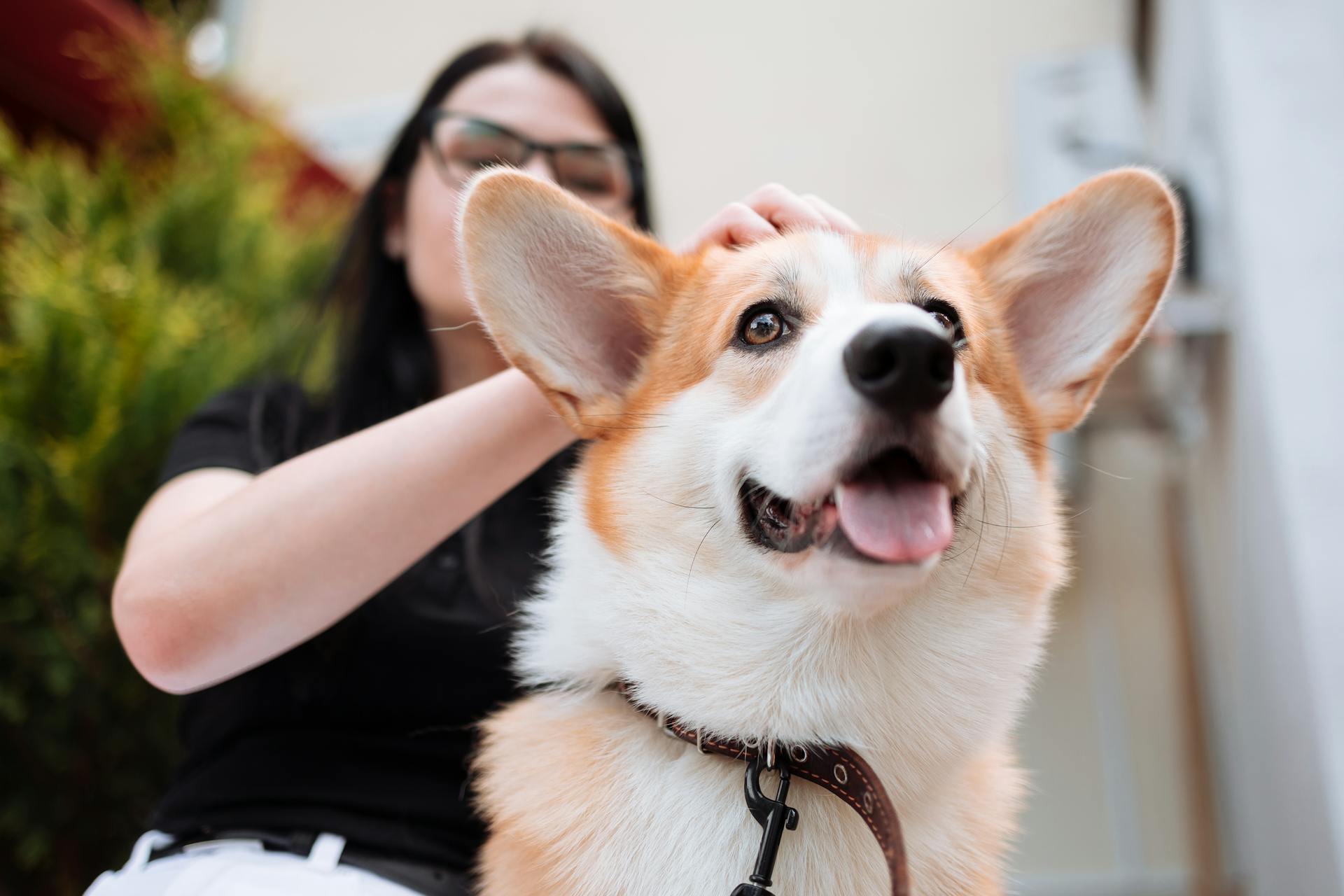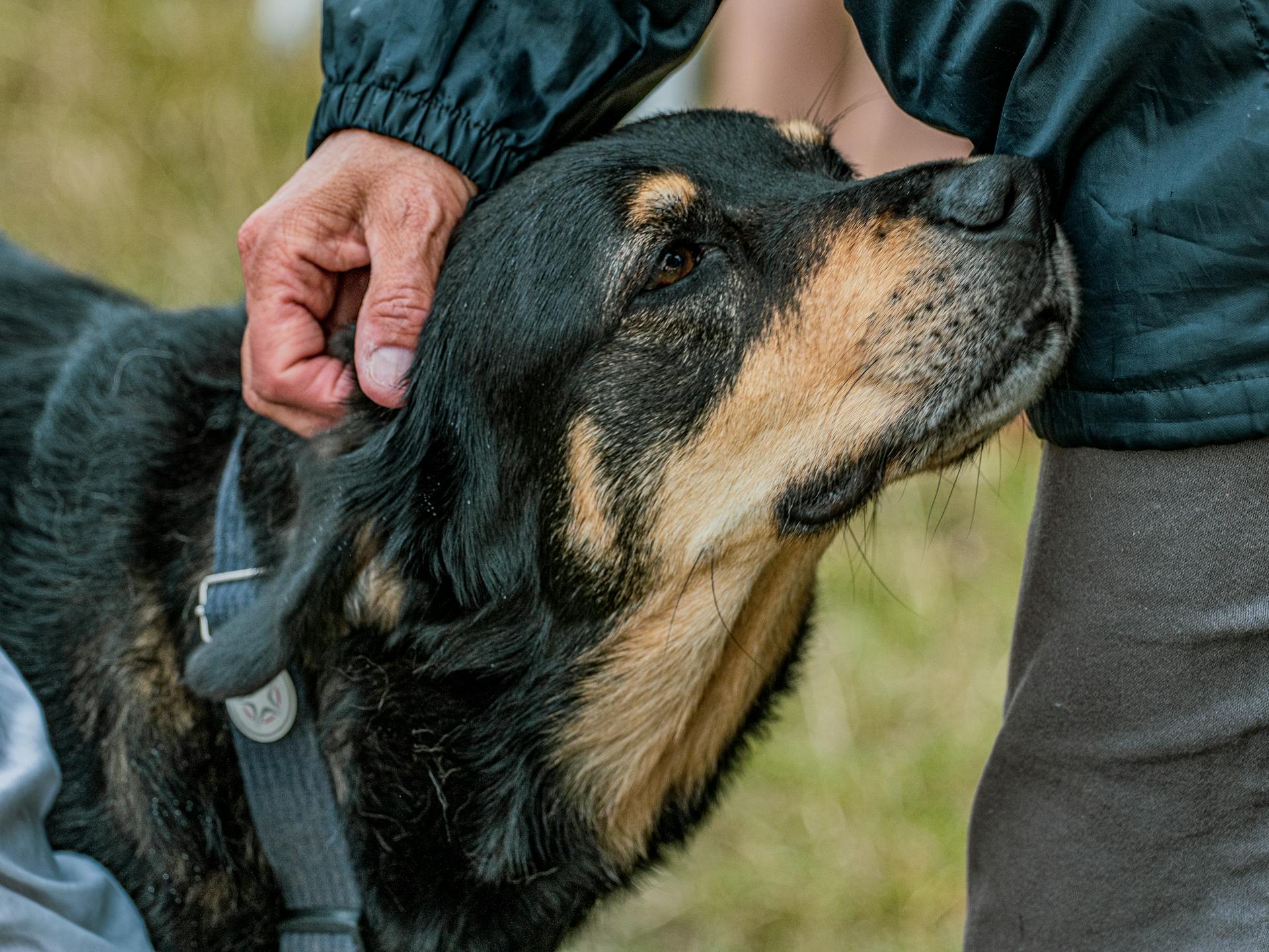
As a dog owner, it's natural to worry when your furry friend starts coughing. But is it a dog cold or kennel cough? Understanding the difference is crucial to ensure your pup receives the right treatment.
A dog cold, also known as a viral upper respiratory infection, is a common condition that affects many dogs. It's usually caused by a viral infection and can be treated with rest, hydration, and over-the-counter medication.
Symptoms of a dog cold include sneezing, runny nose, and coughing. If your dog is experiencing these symptoms, it's essential to keep them isolated to prevent the spread of the infection.
Kennel cough, on the other hand, is a highly contagious respiratory disease that's often caused by the bacteria Bordetella bronchiseptica. It's commonly spread through close contact with an infected dog, such as in kennels or dog daycare centers.
The symptoms of kennel cough are similar to those of a dog cold, but they can be more severe and persistent. If you suspect your dog has kennel cough, it's crucial to seek veterinary attention promptly.
For your interest: Respiratory Allergies in Dogs
Causes and Prevention
Causes of kennel cough can be attributed to various pathogens, including Bordetella, parainfluenza, canine distemper virus, and canine influenza, among others.
These pathogens can spread quickly in moist, warm environments with poor ventilation, such as kennels or shelters, where dogs are exposed to each other repeatedly.
A dog can be infected with kennel cough even after a single exposure to one of these pathogens, making it a highly contagious disease.
Preventing kennel cough is challenging due to its multiple causes, but vaccinating your dog may help. There are three forms of kennel cough vaccine: injected, nasal mist, and oral.
These vaccines may provide protection against kennel cough, but they don't guarantee it, and they won't treat active infections.
How Do Catch?
Dogs can catch kennel cough from a sick dog, contaminated surfaces, or people they come into contact with. This highly contagious illness can be picked up at boarding and day-care facilities, dog parks, or other areas where multiple dogs gather.

Exposure to kennel cough can be brief, lasting only a few minutes, but it's still enough to transmit the infection. Dogs may not show signs of kennel cough for 2 to 14 days after exposure.
In addition to kennel cough, dogs can also catch upper respiratory tract infections from a variety of pathogens, including viruses and bacteria. These can be spread through contact with an infected dog, contaminated surfaces, or people.
Dogs are more likely to be infected in a moist, warm environment with poor ventilation, such as a kennel or shelter. Even a quick meeting at a dog park can be enough to transmit the infection.
For another approach, see: How Long Can Kennel Cough Last in Puppies
Preventing
Preventing kennel cough requires a multi-faceted approach. There are three forms of vaccine available: one injected under the skin, one delivered as a nasal mist, and one given by mouth.
These vaccines may help prevent kennel cough, but they don't guarantee protection due to the many different kinds of bacteria and viruses that can cause it.
Check this out: One Dog Has Kennel Cough the Other Doesn't

The intranasal and oral kennel cough vaccinations are typically given once a year, but dogs at high risk may need them every 6 months.
None of the forms of the kennel cough vaccination will treat active infections, so it's essential to take preventative measures in addition to vaccination.
These forms of the vaccine tend to provide dogs with protection against kennel cough sooner than the injected product.
Explore further: Titers vs Vaccination for Dogs
Symptoms and Diagnosis
Symptoms of kennel cough can be similar to those of a dog cold, but there are some key differences to look out for. Kennel cough symptoms typically start within two to three days of exposure, but can take up to 10 days in some cases.
A persistent, forceful cough is the classic symptom of kennel cough, often sounding like a goose honk. This is distinct from a reverse sneeze, which can be normal in certain dogs and breeds.
Sneezing, a runny nose, or eye discharge can also be symptoms of kennel cough. In more severe cases, dogs may have a fever, trouble breathing, decreased appetite, and lethargy.
It's essential to note that kennel cough can progress to pneumonia in rare cases, especially in younger or immunocompromised dogs. If your dog is showing any of these symptoms, it's crucial to consult with a veterinarian.
A veterinarian will diagnose kennel cough based on your dog's history of possible exposure, clinical signs, and a physical exam. A video of your dog coughing at home can help your veterinarian reach a diagnosis.
Here are some signs that indicate you should take your dog to the vet:
- Cough lasts more than a week, or worsens
- They seem extra tired
- They have a fever (normal body temperature is 100 to 102.5 degrees F in a dog)
- They won't eat
- They have other health problems
A veterinarian may ask you questions like:
- Does your dog have trouble breathing between coughing fits?
- When do they do it? (At night? After eating? After drinking water? After exercise? When they are excited?)
- What does it sound like? (A goose? A seal?)
- Is the cough dry or moist?
- Does it sound like they are about to vomit?
- Where has your dog been lately? (In a place with other dogs? With you on a family vacation? Around a smoker?)
- Have there been any changes to their daily routine?
- Are they up-to-date on their vaccines and heartworm prevention?
- When did they last take their medication?
Treatment and Care
Most dogs will clear kennel cough on their own within 10 to 14 days without treatment, but it's still recommended to take them to a veterinarian to ensure no other interventions are needed.
Antibiotics may be prescribed if the dog has a fever, is very lethargic, or shows signs of secondary bacterial infections, such as yellow or green discharge.
A humidifier in rooms where your dog spends time can help alleviate symptoms, and using a body harness for walks instead of a neck collar can also be helpful.
Cough suppressants can provide relief, but they can also make it harder for the dog to clear the infection, so they're usually only prescribed if the cough is severe.
In some cases, antibiotics may be prescribed to prevent secondary infections, especially in puppies and dogs with weak immune systems.
Treatments
Most cases of kennel cough will resolve on their own without treatment, similar to the common cold in humans, but antibiotics can be prescribed to prevent secondary infections.
Antibiotics are often chosen based on culture results, but a common choice is doxycycline, which targets the more common bacterial causes of CIRD.
A cough suppressant might be prescribed if the cough is severe, but it can make it harder for the dog to clear the infection.
Suggestion: Antibiotics for Kennel Cough in Puppies

You can use a nebulizer to help keep the dog's airway moist, by giving them sterile saline for about 10 minutes, twice a day.
Antibiotics can shorten the shedding period, making the dog less contagious to other dogs.
Most dogs are not contagious after 10 to 14 days of being ill, especially if antibiotics are used in bacterial infections.
Avoiding neck collars and using a body harness for walks can help alleviate symptoms during recovery.
Using a humidifier in rooms where the dog spends time can also help alleviate symptoms.
The kennel cough vaccine can be helpful in preventing the development of this illness, but it's not a 100% guarantee.
You can keep your dog away from other animals for at least 10 to 14 days to prevent the spread of kennel cough.
Antibiotics, cough suppressants, and fluids may be prescribed by your vet to treat kennel cough, depending on the outcome of their diagnosis.
Never give your dog cold remedies for human use because they are highly dangerous.
Keeping your dog in a well-humidified area and using a harness instead of a collar can minimize the coughing.
It's essential to follow up with your veterinarian if your dog doesn't improve within the expected amount of time.
Intriguing read: Kennel Cough Contagious How Long after Antibiotics
How Long Does It Last?

Most dogs with kennel cough recover completely within 1 to 3 weeks.
In some cases, it can take up to 6 weeks for older dogs or those with other medical conditions to fully recover.
If your dog doesn't improve within the expected amount of time, it's essential to follow up with your veterinarian.
Symptoms of rapid breathing, not eating, or listlessness in your dog can be signs of more serious conditions, so contact your vet right away if you notice any of these.
Vaccines and Health
Vaccines play a crucial role in protecting your dog from certain illnesses. Vaccinations can dramatically reduce the risk of your pup getting kennel cough, parvovirus, canine distemper, leptospirosis, and infectious canine hepatitis.
While vaccinations can't protect against everything, they're an essential part of your dog's health routine. Regular vaccinations will help keep your dog safe from many preventable diseases.
You can't entirely protect your dog from kennel cough, but you can minimize their risk with vaccination, proper hygiene, and avoiding high-risk areas.
Flu Risk
Dogs can't get the flu like humans do, but they can get canine flu, which has similar symptoms like sneezing, runny nose, and coughing.
This illness is easily spread between dogs once they've been exposed to it, and if your dog is exposed to an infected dog, the chances of them getting it are very high.
Dog flu can live on your skin for a few minutes and on your clothes for up to a day, so if you've been around an infected dog, make sure you change and wash your clothes before seeing any other dogs.
Fortunately, vaccinations can reduce the risk of your dog getting certain illnesses, including kennel cough, parvovirus, canine distemper, leptospirosis, and infectious canine hepatitis.
If your dog is showing mild symptoms like a runny nose and coughing, but is still eating and drinking normally, it's usually no cause for concern and they should recover within a few days to a week.
However, if your dog's symptoms worsen or they're having difficulty breathing, you should contact your vet straight away.
Worth a look: Coughing after Drinking Water in Dogs
Keep Vaccinations Up to Date
Keeping your dog's vaccinations up to date is crucial for their overall health and well-being. Regular vaccinations can dramatically reduce the risk of certain illnesses like kennel cough, parvovirus, canine distemper, leptospirosis, and infectious canine hepatitis.
Vaccinations can protect your dog from a range of diseases, making it easier to keep them healthy and happy. By staying on top of vaccinations, you can avoid costly and stressful trips to the vet.
Here are some key vaccinations to keep in mind:
- Parvovirus
- Canine distemper
- Leptospirosis
- Infectious canine hepatitis
Remember, no vaccination is 100% effective, but regular boosters can keep your dog's immunity strong and reduce the risk of disease.
Frequently Asked Questions
What does a dog with a cold sound like?
A dog with a cold may cough loudly, sounding like a honking goose, and often ends with gagging or retching. This distinctive sound can be alarming, but it's a common symptom of a canine cold.
Sources
- https://resources.bestfriends.org/article/kennel-cough-dogs-symptoms-treatments-vaccine
- https://ervets4pets.com/what-every-dog-owner-needs-to-know-about-kennel-cough/
- https://www.rivergateveterinaryclinic.com/site/blog/2023/06/30/what-is-kennel-cough-in-dogs-symptoms-treatment--prevention
- https://www.purina-arabia.com/articles/dogs/health/respiratory/dog-colds-and-flu
- https://www.webmd.com/pets/dogs/kennel-cough-in-dogs
Featured Images: pexels.com


